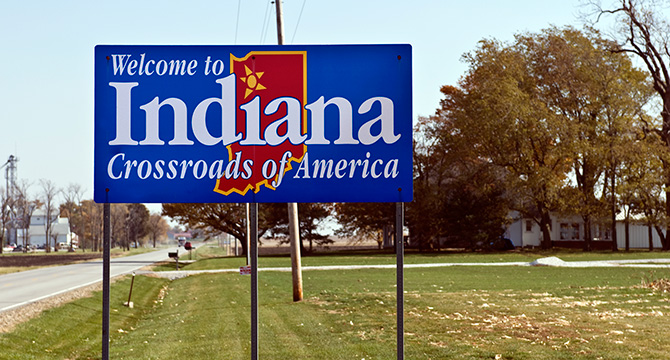Indiana Reverses Course on Telemedicine Prescribing and Controlled Substances Laws

Indiana has taken another step towards expanding the meaningful use of telemedicine in connection with clinical services and prescribing. HB 1337, signed by Governor Eric Holcomb and effective July 1, 2017, will allow providers to prescribe controlled substances via telemedicine without an in-person examination, albeit with some notable limitations and restrictions. The law reverses Indiana’s 2016 telehealth law that prevented providers from prescribing controlled substances via telehealth technologies.
Prescribing Drugs via Telemedicine
Under the new law an Indiana provider may prescribe non-controlled substances via telemedicine, without an in-person exam, if the following conditions are met:
- The provider has satisfied the applicable standard of care in the treatment of the patient.
- The issuance of the prescription by the provider is within the provider’s scope of practice and certification.
- The prescription is not for a controlled substance.
- The prescription is not for an abortion inducing drug.
- The prescription is not for an ophthalmic device, including: (1) glasses; (2) contact lenses; or (3) low vision devices.
Prescribing Controlled Substances via Telemedicine
Under the new law an Indiana provider may prescribe controlled substances via telemedicine, without an in-person exam, if the prescriber satisfies the conditions outlined above and the following conditions are met:
- The prescription is not for an opioid, unless the opioid is a partial antagonist that is used to treat or manage opioid dependence.
- The prescriber maintains a valid controlled substance registration.
- The prescriber meets the conditions set forth in the federal Ryan Haight Act.
- The patient has been examined in-person by a licensed Indiana health care provider and the licensed health care provider has established a treatment plan to assist the prescriber in the diagnosis of the patient.
- The prescriber has reviewed and approved that treatment plan and is prescribing for the patient pursuant to that treatment plan.
- The prescriber complies with Indiana’s INSPECT prescription drug monitoring program.
- The prescription for a controlled substance is prescribed and dispensed in accordance with Indiana Code 35-48-7.
While Indiana’s new law removes its prior blanket ban on telemedicine prescribing of controlled substances, it still requires the patient to undergo an in-person exam conducted by an Indiana health care provider, although not necessarily by the prescriber herself. This renders Indiana law more restrictive than many states, and even more restrictive than the federal Ryan Haight Act. The new law follows a growing trend among states to amend and eliminate prior statutory prohibitions on telemedicine prescribing of controlled substances. Michigan, for example, recently enacted a law to eliminate its previous ban, and now allows health professionals to prescribe controlled substances via telemedicine without an in-person examination.
This is encouraging news for providers using telemedicine in their practice, as controlled substances are an important and clinically significant component of certain specialties, including telepsychiatry, endocrinology, and hospitalists/emergency medicine.
Telemedicine prescribers should continue to be mindful of prescribing requirements under federal laws, as remote prescribing of controlled substances is governed by the Ryan Haight Act. Providers must understand and navigate many intersecting state and federal laws on telemedicine, medical practice, fraud and abuse, and controlled substances.
© 2017 American Health Lawyers Association. Washington, DC. Reprinted with permission.
